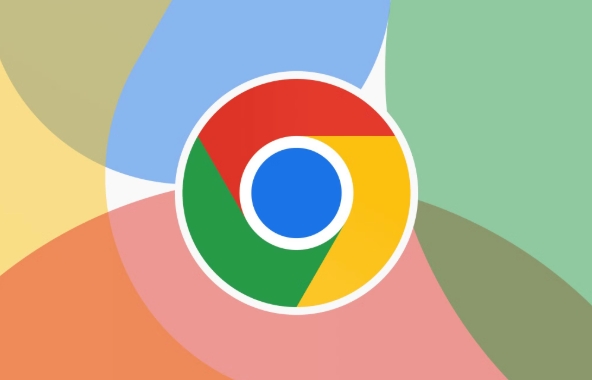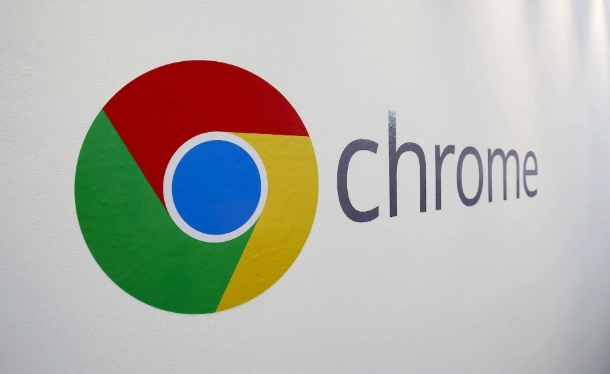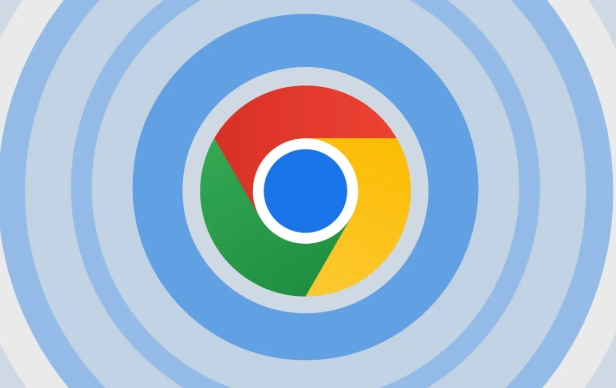Turn off Chrome safe browsing function with caution. 1. Close on your computer: Turn on Chrome settings → Privacy and Security → Security → Select "No protection (not recommended)". 2. Turn off on your phone: Android users enter Chrome settings → Privacy and Security → Security → Turn off safe browsing protection (some models are not optional). 3. The risks after closing include the inability to identify malicious websites and the possibility of phishing attacks. Enterprise users may be limited by management strategies. 4. The temporary alternative is to click "Advanced" → Go to the URL to bypass the warning. It is recommended to close only when the needs are clarified and to bear the corresponding risks.

If you are using a Chrome browser, it is not difficult to turn off the "safe browsing" function. However, it should be noted that after turning off this function, the browser will no longer remind you whether the website you visit may have phishing, malware and other problems, which may increase the risk of accessing the Internet.

Here are a few key points and operating methods you need to know:

Turn off Chrome Safe Browsing on your computer
Chrome's Safe Browsing Protection is on by default, but you can turn it off manually. The steps are as follows:
- Open Chrome browser
- Click the three dots in the upper right corner → Settings
- Select "Privacy and Security" → "Security" on the left menu
- Select "No protection (not recommended)" in "Safe browsing protection level"
This completes the shutdown of the safe browsing function. It should be noted that some settings may vary slightly depending on the operating system or Chrome version.

Turn off Chrome Safe Browsing on your phone
If you are using the Chrome app on your Android phone, you can also make similar settings:
- Open the Chrome app
- Click the three dots in the lower right corner → Settings
- Select "Privacy and Security" → "Security"
- Set Safe Browsing Protection to Off
However, in some Android versions, this option may be gray-out-of-optional because the system itself enables the mandatory protection mechanism.
The possible impact of closing safe browsing
While you can turn off the feature by using the above method, doing so does bring some potential problems:
- No warnings are received when visiting malicious websites
- May be more susceptible to phishing attacks
- If you are an enterprise user, you may also be restricted by management policies and cannot change your settings yourself
So it is recommended to close only if there is a clear requirement, for example when you are testing web page security or accessing a local development environment.
Alternative: Temporarily ignore warnings
If you just occasionally want to visit a website marked as "dangerous" and don't want to turn off safe browsing completely, you can choose to click "Advanced" and then select "Go to [Website] (not recommended). This method allows you to temporarily bypass warnings without changing the overall settings.
Basically that's it. Turning off Chrome's safe browsing feature is not particularly complicated, but be sure to be clear about why you do it and the risks you may take.
The above is the detailed content of How to turn off safe browsing in chrome. For more information, please follow other related articles on the PHP Chinese website!

Hot AI Tools

Undress AI Tool
Undress images for free

Undresser.AI Undress
AI-powered app for creating realistic nude photos

AI Clothes Remover
Online AI tool for removing clothes from photos.

Clothoff.io
AI clothes remover

Video Face Swap
Swap faces in any video effortlessly with our completely free AI face swap tool!

Hot Article

Hot Tools

Notepad++7.3.1
Easy-to-use and free code editor

SublimeText3 Chinese version
Chinese version, very easy to use

Zend Studio 13.0.1
Powerful PHP integrated development environment

Dreamweaver CS6
Visual web development tools

SublimeText3 Mac version
God-level code editing software (SublimeText3)
 How to stop Chrome from updating in the background on Mac
Jul 21, 2025 am 12:41 AM
How to stop Chrome from updating in the background on Mac
Jul 21, 2025 am 12:41 AM
To prevent Chrome from automatically updating on Mac, it can be done by disabling update services, modifying permissions, and restricting network access. 1. Use terminal commands to disable the GoogleSoftwareUpdate daemon to prevent background updates; 2. Modify update directory permissions to prevent Chrome from starting the update process by itself; 3. Restrict Chrome's outbound network connection through system firewall or third-party tools to further eliminate update requests. Using these methods in combination can effectively prevent Chrome from being automatically updated.
 How to fix Chrome's spell checker not working
Jul 20, 2025 am 12:03 AM
How to fix Chrome's spell checker not working
Jul 20, 2025 am 12:03 AM
When Chrome spelling check fails, you can troubleshoot and fix it by following the following steps: 1. Confirm that the "Use Spelling Check" function is enabled and check whether the corresponding language is enabled in the language settings; 2. Adjust the input language order, delete the redundant language, and ensure that the main language enables spelling check; 3. Close possible conflicting extensions, especially syntax or translation plug-ins; 4. Update Chrome to the latest version and check the operating system updates. If it still doesn't work, try resetting Chrome settings.
 How to stop Chrome from automatically opening PDF files
Jul 21, 2025 am 12:09 AM
How to stop Chrome from automatically opening PDF files
Jul 21, 2025 am 12:09 AM
To let Chrome download directly instead of opening it when clicking on the PDF link, 1. Enter chrome://settings/content/pdfDocuments to check "DownloadPDFfilesinsteadofautomatically opening theminChrome"; 2. Check whether there are plug-ins such as Lightpdf or Smallpdf interfering behavior, you can try to disable the test; 3. You can use the developer tools to copy the link and paste the new tag to trigger the download. The above methods can be selected according to the situation.
 How to fix screen tearing when scrolling in Chrome
Jul 25, 2025 am 12:55 AM
How to fix screen tearing when scrolling in Chrome
Jul 25, 2025 am 12:55 AM
The screen tear occurs when the Chrome browser scrolls, which is usually caused by the out-of-synchronization of rendering and refresh. The solutions are as follows: 1. Ensure that hardware acceleration is enabled, you can manually check the settings and restart the browser; 2. Forcefully enable Compositor and related options to optimize rendering; 3. Check the display refresh rate, use single-screen testing, and enable VSync or adaptive synchronization technology on supported devices; 4. Update the graphics card driver or replace the display interface such as using the DP interface. It is recommended to start the troubleshooting with simple steps and gradually adjust to find the best configuration.
 How to fix Chrome profile sync getting stuck in setup
Jul 25, 2025 am 01:10 AM
How to fix Chrome profile sync getting stuck in setup
Jul 25, 2025 am 01:10 AM
The problem of Chrome sync stuck can be solved through the following steps: 1. Check the network connection and Google account status to ensure normal access; 2. Log out and log in to the Chrome account again; 3. Clear the synchronized data and restart the browser; 4. Reset Chrome settings; 5. Try the traceless mode or new user profile. Sequentially checking can effectively restore the synchronization function.
 Chrome keeps opening new tabs by itself
Jul 22, 2025 am 12:22 AM
Chrome keeps opening new tabs by itself
Jul 22, 2025 am 12:22 AM
The problem of Chrome automatically popping up new tabs is usually caused by malicious extensions, advertising scripts, or browser hijacking. The solutions are as follows: 1. Check and uninstall suspicious extensions, especially ad-class plug-ins; 2. Clear browser caches and cookies to eliminate data corruption; 3. Check whether the homepage and default search engine settings have been tampered with and manually corrected; 4. Use antivirus software such as WindowsDefender or Malwarebytes to scan and clear potential malware; 5. Finally, try resetting Chrome settings to restore the default configuration. Troubleshooting in this order can effectively solve most abnormal labeling problems.
 How to fix Chrome opening new windows instead of tabs
Jul 26, 2025 am 01:29 AM
How to fix Chrome opening new windows instead of tabs
Jul 26, 2025 am 01:29 AM
1. Check whether the shortcut attribute has additional parameters and delete it; 2. Clear cache and switch startup settings, or create new user information; 3. Extend the impact and disable the problem plug-in through traceless mode. Chrome pops up new windows instead of tabs usually due to exceptions in shortcut parameters, cache configuration conflicts, or third-party extension interference. Check and adjust the corresponding settings in turn to resolve.
 How to fix Chrome when it's not printing correctly
Jul 26, 2025 am 02:46 AM
How to fix Chrome when it's not printing correctly
Jul 26, 2025 am 02:46 AM
Chrome printing exceptions can be solved in the following ways: 1. Check the printer selection, paper size, orientation, zooming and background graphics settings in the print preview; 2. Try stealth mode to eliminate extended interference and clear cache; 3. Update or reinstall the printer driver, replace the general driver or use the "Print as PDF" method; 4. Finally, you can reset the Chrome settings to restore the default. Most problems can be solved through the first few steps. If they still fail, you can export PDF to print.






